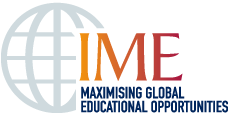There are 23 modules available to study for the Diploma in Medical Studies; a minimum of 20 modules are required to be achieved for the award of the Diploma.
Human Cell Biology: the structure and function of cells as well as the exchange mechanisms of the cell membrane.
Biological Communication Systems: the structure and function of the nervous and endocrine system and the difference between nerve and hormone actions.
Human Cardiac and Respiratory Systems: the structure and function of the respiratory and cardiovascular systems as well as the circulation of blood in the human body.
Nutrition and Digestion: the nutritional requirements of humans, the key components of a balanced diet and digestion in the human gut and identification of biochemical molecules in food.
Reproduction: the key events in reproduction and pregnancy and birth and the changes that occur in the developing foetus.
Skeleton and Muscles: the function and properties of the skeleton and joints. The muscular system and the importance of a healthy skeletal and muscular system.
Acids and Bases: understanding of Acids, Bases and the pH scale.
Haloalkanes, Alcohols, Aldehydes and Ketones: the structure and nomenclature of organic chemistry. The structure and reactions of alcohols, haloalkanes, aldehydes and ketones.
Biochemistry: biological molecules and the actions of enzymes.
Medical Chemistry: the different classes of drugs and their effects on the human body.
Medical Physics: different diagnostic imaging technology, the use and workings of the imaging technology and their use in the diagnosis of a condition.
Genetics: the function of genetic material and the mechanisms of mitosis and meiosis. The module also covers the principles of Mendelian genetics.
Infectious Diseases: the nature of infectious micro-organisms, the effect of personal behaviour and the impact of medical research on the spread of disease.
Inherited Diseases: the genetic control of proteins, the inheritance of disease using Mendelian genetics and the application of DNA technology to treat diseases.
Complementary and Alternative Medicine Therapies: different types of complementary and alternative medicines/therapies and how they differ from conventional medicines/therapies. The role of complementary and alternative medicines/therapies in health care.
A Medical Condition: the physiological changes, symptoms and treatments for a specified condition along with the wider effects that it has on the patient both psychologically and socially as well as support options for these effects.
Health Psychology: the physiological approach to health behaviour and habits, how these are explained by different models and how models are used to change people’s health behaviour.
Sociology of Health: the different definitions of health, illness and disability from biomedical and sociological perspectives and the perception of the role of medical professionals in society.
Maths in a Health and Care Context: the mathematical foundation for entering the health and care sector including formulae, conversions, solution strengths, dosages and drip rates.
Statistics: calculation and interpretation of data using statistical and mathematical methods.
English for Academic Study: to improve the use of English language skills for academic purposes. Text analysis, forms of writing and evaluation of own written work.
Research and Referencing: researching using different research methods, referencing and the implications of copyright.
Producing a Written Assignment: synthesis of information using different sources, note-making in different formats, planning, structuring and writing an assignment on a complex topic.
